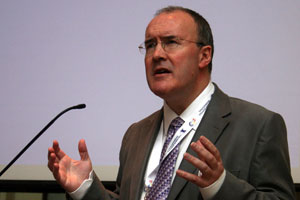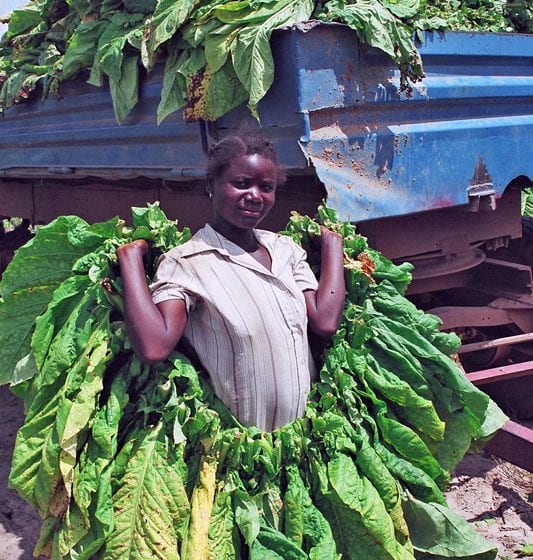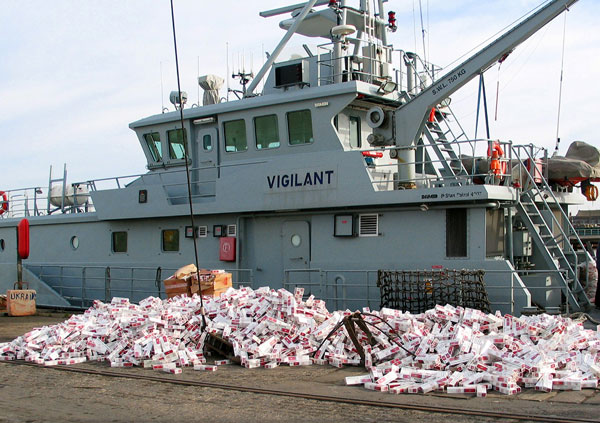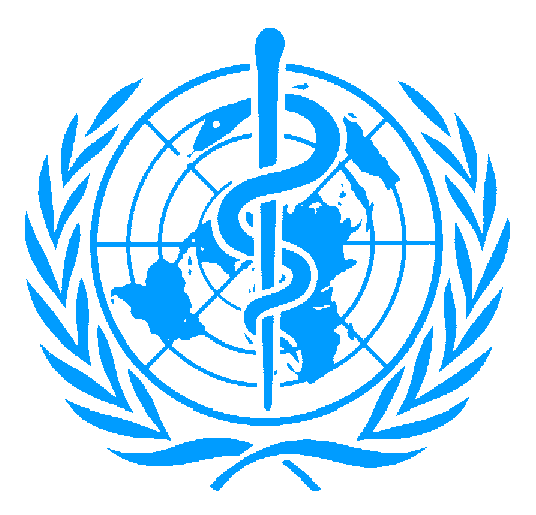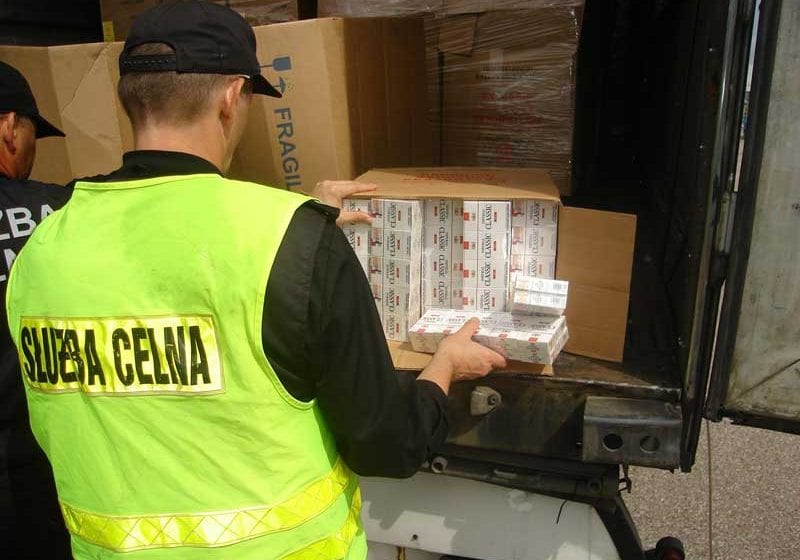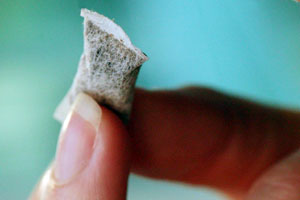Campaigners have urged the UK Chancellor Philip Hammond to freeze tobacco duty when he delivers his autumn budget statement on October 29.
Simon Clark, director of the smokers’ group Forest said today that tobacco duty had been rising for years because of the so-called tobacco tax escalator.
Today, more than 80 percent of the retail price of cigarettes and rolling tobacco went to the government.
And a further increase in tobacco duty would once again hit those who could least afford it, including the elderly and the low paid.
“As well as forcing some people further into poverty, it will inevitably encourage others to buy their tobacco abroad or on the black market at home,” Clark said.
“This will hit legitimate retailers and the government will lose revenue; so no-one wins apart from criminal gangs and illicit traders.”
Calling for a freeze on tobacco duty, Clark said that while smoking might not be a healthy lifestyle choice, tobacco was a legal product and targeting smokers with punitive taxation was unfair on consumers and retailers.
“Fair’s fair,” he said. “A freeze on tobacco duty is long overdue and would be welcomed by millions of smokers who are tired of being singled out by successive governments.”
Category: Illicit Trade

Call for duty freeze

Menthol ban studied
A ban on menthol cigarettes brought in by a Canadian province did not trigger a rise in the sales of illegal cigarettes that was predicted by the tobacco industry, according to an American Cancer Society (ACS) story published by HealthDay and citing a new study.
The story said that when Nova Scotia became the first jurisdiction in the world to ban menthol cigarettes in May 2015, the ‘tobacco industry’ claimed that “the primary effect of this law will be to increase the illegal tobacco market in Nova Scotia”.
To determine if that were true, study author Michal Stoklosa, an economic and health policy research scientist at the ACS, analyzed Nova Scotia government data from 2007-2008 to 2017-2018.
His study found a large decrease in the number of seized illicit cigarettes of any kind, from more than 60,000 cartons in 2007-2008 to just under 10,000 cartons in 2017-2018. Most of this decline occurred in the late 2000s, which was said to suggest that there was no link between seizures and the menthol cigarette ban.
There was no statistically significant difference in the number of cigarettes seized before and after menthol cigarettes were banned, according to the researchers.
“This indicates that illicit cigarette sales in the province are similarly unlikely to be increasing,” Stoklosa was quoted as saying in an ACS news release.
“Indeed, Nova Scotia tax authorities estimate that the prevalence of illegal tobacco in the province has actually decreased, from 30 percent of all tobacco consumed in 2006-2007 to less than 10 percent in 2016-2017.”
The study findings were published on October 11 in the journal Tobacco Control.
BAT shows off Zambia plant
British American Tobacco (BAT) Zambia’s MD, Godfrey Machanzi, says his company is committed to contributing toward the country’s economic development, according to a story in The Lusaka Times.
Machanzi was speaking during a media tour of the company’s new, US$25 million cigarette manufacturing factory in Lusaka on Saturday.
The factory, which is situated at the Lusaka South Multi-Facility Economic Zone, was said to have created 72 direct jobs and a further 2,500 jobs in the ‘formal and informal sectors’.
Machanzi noted also that the construction of the factory was evidence of the Government’s commitment to enabling investment in the country.
BAT Zambia previously had a factory in the country, but it had been closed, Machanzi said, before adding that the company’s return was an expression of its confidence in the Zambian economy.
He said that, as in other markets, tobacco production supported many jobs and therefore had a positive impact on the country’s economy.
But he sounded a warning. He said the illegal tobacco trade continued to be the biggest challenge. Zambia had the highest incidence of illegal tobacco-products imports in Southern Africa.
Hong Kong to ban e-cigs
Hong Kong is set to ban electronic cigarettes and other ‘new tobacco products’, according to a story in the South China Morning Post.
The territory’s chief executive, Carrie Lam Cheng Yuet-ngor, was expected to announce the ban during a policy address today setting out about 250 initiatives.
The ban represents a U-turn by the government, which had previously proposed only to restrict the sale of such products to minors.
The Post reported that it had been told by ‘sources’ that the ban would cover e-cigarettes and other alternative products, such as heat-not-burn and herbal cigarettes.
Until now, the government had committed only to regulating e-cigarettes in the same way as conventional tobacco products are regulated, but health minister Sophia Chan Siu-chee left the door open for “more stringent measures”, depending on what medical evidence had to say about the health implications of these products.
However, a source familiar with the Food and Health Bureau expressed shock at the move, saying the previous administration had listed many technical problems with implementing a full ban.
Former health chief Dr. Ko Wing-man had intended to introduce a total ban in 2016, but studies by related departments suggested that such a move would be “quite problematic”.
Christine Hu, spokeswoman for the Coalition on Tobacco Affairs, an umbrella group of tobacco producers, said last night that she was upset by the proposal because it would boost the underground market for these products and fail to protect those under 18.
She said the Coalition was disappointed by the government’s “selective and blind adoption of views expressed by certain groups”, and disappointed that it had ignored opinions from the industry and scientific data from overseas.
PMI supports protocol
Philip Morris International said today it was publishing a position paper supporting an international protocol aimed at eliminating the illegal trade in tobacco products.
The first Meeting of the Parties (MOP1) to the Protocol to Eliminate Illicit Trade in Tobacco Products, which is a protocol of the World Health Organization’s Framework Convention on Tobacco Control, is taking place in Geneva this week.
‘With approximately one out of 10 cigarettes smoked globally stemming from illicit trade, Parties to the Protocol should take a collaborative approach to tackling the problem of illicit trade,’ PMI said in a note posted on its website. ‘Available on PMI’s website, the position paper proposes effective strategies for tackling the illicit tobacco trade, aligned with key provisions of the Protocol.’
Meanwhile, Alvise Giustiniani, vice president of illicit trade prevention at PMI, was quoted as saying the Protocol was a significant and crucial global tool to tackle the serious issue of the “illicit tobacco trade”. “We strongly support the objectives and principles of the Protocol, as well as the Meeting of the Parties which is an important step in tackling the multi-faceted and highly complex problem of illicit tobacco trade,” he said
‘The Protocol brings together countries against the scourge of illicit tobacco trade, and it will have a key role to play in helping to defeat the illegal tobacco market,’ the position paper says. ‘Collaboration will be a key element of its success: national governments, international organizations and civil society working to fight illicit tobacco trade together.’
PMI said that, in its view, effective strategies for tackling the ‘illicit tobacco trade’ must be articulated across the following six pillars:- ‘Product tracking and tracing based on open and recognized international standards
- ‘Effective control and monitoring of Free Trade Zones
- ‘Enhanced international co-operation
- ‘Application of deterrent sanctions to illicit traders
- ‘Licensing regimes that focus on tackling illicit trade
- ‘Meaningful due diligence and record-keeping requirements.’
PMI has a dedicated website StopIllegal https://www.stopillegal.com/

Shame about the venue
The fact that Switzerland has not ratified the World Health Organization’s Framework Convention on Tobacco Control (FCTC) but is hosting its conference is shameful, according to a story at swissinfor.ch quoting a top WHO official.
“I think this is more of a shame than a problem that Switzerland is not party to the treaty, as this is all about protecting the public health of the population,” the head of the FCTC Secretariat, Vera Luiza da Costa e Silva, reportedly told reporters at the United Nations headquarters in Geneva on Friday.
State representatives, experts and other officials are meeting in Geneva this week for the eighth meeting of the Conference of the Parties to the FCTC.
Switzerland signed the FCTC in 2004 but has not ratified it, partly due to recent changes to a draft law on tobacco products and specific issues related to advertising and sponsorship.
But it is not alone. Other countries, mainly tobacco-growing states, such as the US, Argentina, Malawi and Cuba, have not ratified the FCTC.
Da Costa e Silva said there was not enough political will in Switzerland to apply all measures in the treaty in the face of the tobacco industry present in the country.
About 180 states are set to attend COP8, followed by the first session of the Meeting of the Parties (MOP1) to the Protocol to Eliminate Illicit Trade in Tobacco Products (October 8-10).
The second conference is due to discuss, among other issues, global, regional and national systems to track tobacco products from the production site to the initial sales site, which is due to be launched by 2023.
EU has fakes problem
Cigarettes made up nine percent of the products ‘detained’ by EU customs authorities on their external borders last year, according to figures contained in a report published by the EU Commission on Thursday.
The Commission reports annually on the detention of ‘articles suspected of infringing intellectual property rights (IPR), such as trademarks, copyrights and patents’.
A press note accompanying the report said that customs authorities in the EU had detained more than 31 million ‘fake and counterfeit’ products.
Foodstuffs, which accounted for 24 percent of the detained articles, headed the list, toys (11 percent) came next, then cigarettes (nine percent), other goods (nine percent) and clothing (seven percent).
China was said to have remained the main source for IPR-infringing goods arriving in the EU. But other countries were the main providers of certain articles. Moldova was the lead country in the supply of alcoholic beverages; the US was the lead country for other beverages; Turkey was the lead country for clothing; and India was the lead country for medicines.
‘Although the total figures have declined since 2016, fake, potentially-dangerous goods for day-to-day use like healthcare products, medicines, toys and electrical goods now make up a much higher proportion of all seizures – 43 percent of all detained goods came from this category,’ the Commission said.
“The EU’s Customs Union is on the front line when it comes to protecting citizens from fake, counterfeit and sometimes highly dangerous goods,” Pierre Moscovici, commissioner for Economic and Financial Affairs, Taxation and Customs, was quoted as saying.
“Stopping imports of counterfeits into the EU also supports jobs and the wider economy as a whole.
“The European Union stands in support of intellectual property and will continue our campaign to protect consumer health as well as protecting businesses from criminal infringement of their rights.”
Going it alone
The EU Commission has said that figures showing a high level of illicit cigarettes entering France from Algeria are principally a matter for the French authorities.
The Commission was responding to questions from the Czech member of the EU Parliament, Tomáš Zdechovský.
Zdechovský had said that France was the EU member state that recorded the highest volumes of illegal cigarettes each year.
‘Algeria is the country of origin of 3.19 billion cigarettes, i.e. over 35 percent of the total, according to a study of the illicit cigarette market commissioned by the Royal United Services Institute,’ he said, before asking.- ‘Is OLAF supporting France in investigating the routes from Algeria?
- ‘Has OLAF considered that those routes may include other member states (e.g. Spain)?’
In reply, the Commission said that the figures quoted did not come from a Report of the European Anti-Fraud Office (OLAF). ‘They are principally a matter for the French authorities to consider,’ it said. ‘France has so far not requested OLAF’s assistance in this regard.’
The Commission went on to say that, in general, OLAF had a unique investigative mandate to fight tobacco smuggling into the EU. ‘In complex cross-border cases in particular, OLAF can bring significant added value by helping co-ordinate anti-smuggling operations carried out by law-enforcement agencies across Europe,’ it said. ‘OLAF works to ensure that evaded duties are recovered, criminal smuggling networks are dismantled and perpetrators brought to justice. In such cases, OLAF always considers implications on other member states and countries outside the European Union.’
In recent years, the Commission added, EU member states had seized between 3.1 and 3.8 billion cigarettes each year. ‘OLAF contributed to the seizure of more than 1.5 billion cigarettes over the last three years,’ it said. ‘Detailed information and examples about joint customs operations (JCOs) co-ordinated by OLAF which have led to the seizure of tobacco products can be found in the OLAF reports for 2017 and 2016.’
Identifying a problem
A Danish member of the EU Parliament has asked the Commission whether the requirement for unique, tobacco-product identifiers will be waived in the case of products manufactured in the EU but intended for export to countries that do not allow such markings.
In a preamble to his questions, Bendt Bendtsen said the rules of the Commission Implementing Regulation (EU) 2018/574 of December 15, 2017, on technical standards for the establishment and operation of a traceability system for tobacco products required in Article 6(1) that manufacturers marked each pack produced in the Union with a unique identifier.
‘What does the Commission intend to do in order to ensure that no tobacco products produced in the EU are prevented from being imported into non-EU countries as a result of the new Track and Trace rules, which require all EU-manufactured products to show a mandatory unique identifier?’ he asked.
‘Does the Commission intend to take steps to suspend said requirement for products manufactured for import into countries which, as of 20 May 2019, do not allow imports of tobacco products produced in the Union as a result of the EU requirement of a unique EU identifier?’
The Commission is due to answer in writing.
Smuggling snus
Eight people are alleged to have smuggled more than 12 tonnes of snus from Sweden to Finland between 2016 and 2018, according to a story in The Local Europe quoting the Finnish customs authority.
Snus has been banned from sale in the EU since 1992, apart from in Sweden, which negotiated an exemption to the ban when it joined the union in 1995.
The main suspect is said to be a Finnish man in his 50s who lives across the border at Haparanda, Sweden. while a younger person, also residing in Sweden, is alleged to have helped him.
The other suspects live near the Finnish capital and in Kajanaland, eastern Finland.
All eight are accused of smuggling and aggravated tax fraud.
Bringing small amounts of snus into Finland for personal consumption is allowed.
But according to prosecutors, the snus in question – in total 12,700 kg – was bought in Swedish stores and transported in several cars to customers in the Kemi-Torneå area of Finland and then distributed further south in the country.
The alleged smuggling ring was caught when customs officers stopped a van carrying 175 kg of snus in Finland in April this year.
The case is due to go before a Lapland court later this autumn.

